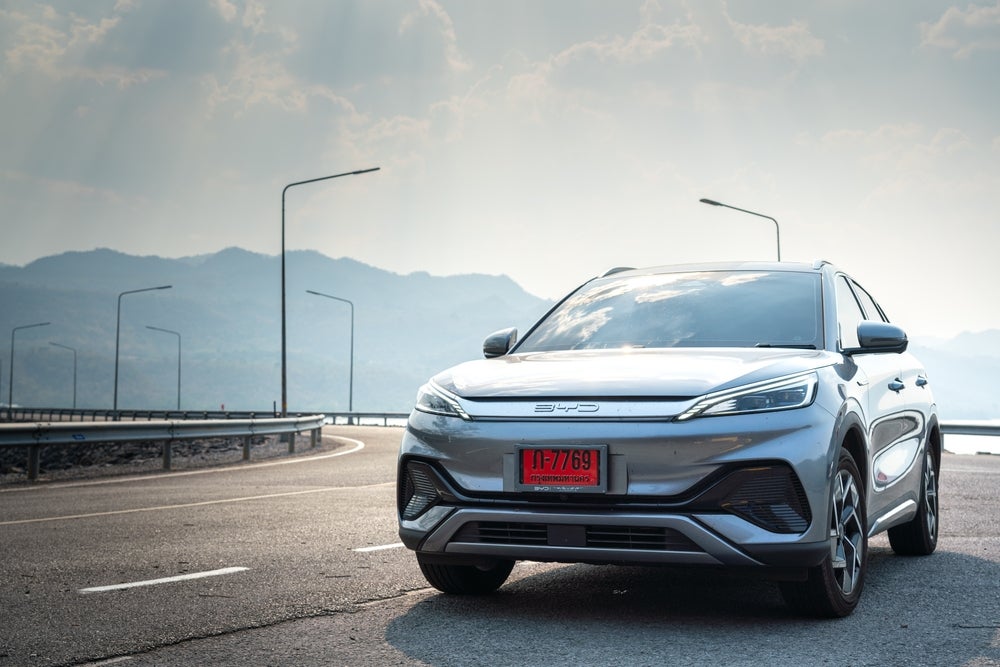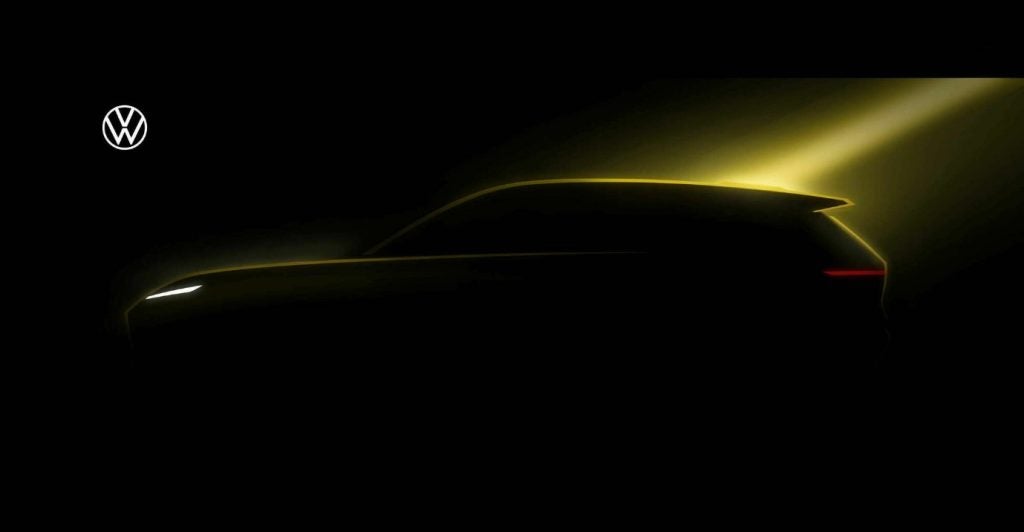The future of the automotive industry will be shaped by a range of disruptive themes, with the internet of things (IoT) being one of the themes which will significantly impact the potential growth of leading companies in the industry. A detailed analysis of the theme, insights into the leading companies, and their thematic and valuation scorecards are included in GlobalData’s thematic research report,Internet of Things (IoT) in Automotive – Thematic Research. Buy the report here.
The automotive sector faces four synchronous disruptive threats: electric vehicles (EVs), autonomous vehicles (AVs), connected car, and transport as a service (TaaS). IoT refers to the use of connected sensors and actuators to control and monitor the environment, the things that move within it, and the people that act within will play a key role in advancing these four disruptive themes.
The global IoT market is forecast to register a compound annual growth rate (CAGR) of more than 11% during 2020-2024, according to GlobalData estimates. Enterprise IoT dominates the overall IoT market, generating 76% of total revenue in 2020.
IoT is one of the primary enablers of digital transformation in the automotive sector. It brings together various technologies, like AI, 5G, edge computing, and cloud computing, which helps reduce latency levels to allow real-time decision-making and reduce the need for human intervention in IoT ecosystems. The connected car will increase data generation exponentially and establish itself as a key component of the IoT ecosystem, and eventually, an extension of consumers’ automated homes. Automakers must use this abundance of data to pivot their business models towards software and reduce their dependence on Big Tech to meet the needs of their customers.
However, not all companies are equal when it comes to their capabilities and investments in the key themes that matter most to their industry. Understanding how companies are positioned and ranked in the most important themes can be a key leading indicator of their future earnings potential and relative competitive position.
According to GlobalData’s thematic research report, IoT in Automotive, leading adopters of IoT include: BMW, BYD, GM, Honda, SAIC Motor, Toyota, and Tesla.
Insights from top ranked companies
Toyota
Toyota is investing more than $3bn in its Toyota Research Institute and a spin-out new company TRI-AD (Toyota Research Institute – Advanced Development), focused on auto tech. It insists the world is “not close to achieving level 5 autonomy.” It is developing LiDAR with US start-up Luminar. In February 2020, Toyota spread its AV bets a little further with a $400m investment in Chinese company Pony.ai with the intention of co-developing mobility services. Toyota has created a separate mobility company to focus on future mobility, including AVs and smart cities, called Woven Planet. In April 2021, Woven Planet agreed to purchase the level 5 (full-self driving) business from ride-hailing company Lyft.
BMW
BMW was one of the first carmakers to rebrand itself as a mobility service provider. It’s been the first to bring to market some of the most innovative connected vehicle technology features, such as Here maps that provide real-time traffic information. It works closely with Harman at the design stage to package Human-Machine Interface (HMI), connectivity, and telematics services as seamlessly as one might expect of a premium vehicle brand. The company also worked with Microsoft to launch the Open Manufacturing Platform, an open industrial IoT platform to accelerate production and logistics optimisation efforts. BMW has also worked with IBM to explore how Watson’s machine learning services can improve the driving experience.
To further understand the key themes and technologies disrupting the automotive industry, access GlobalData’s latest thematic research report on IoT in Automotive.
- Nissan
- Changan Automobile
- Honda
- Volkswagen
- Daimler
- Ford
- Hyundai Motor
- BAIC
- Dongfeng Autos
- Tata Motor
- Mazda Motor Corp
- Mitsubishi Motors
- Renault
- Stellantis
- Mahindra & Mahindra
- Suzuki
- Subaru Corp
Premium Insights
From

The gold standard of business intelligence.
Blending expert knowledge with cutting-edge technology, GlobalData’s unrivalled proprietary data will enable you to decode what’s happening in your market. You can make better informed decisions and gain a future-proof advantage over your competitors.
Frequently asked questions
-
1. How are Automotive companies using Internet of Things (IoT) technologies?
Automotive companies are using IoT technologies to improve the efficiency of the automotive value chain. IoT is being used at all stages of the value chain, from supplier network to sales and post-sale activity. Tier 1 and 0.5 suppliers are driving the development of connected car technologies, while auto manufacturers are using the Industrial Internet to streamline production processes and increase efficiency. IoT is also being used in the post-sale layer of the value chain through telematics-based insurance and predictive vehicle maintenance.
-
2. How do internet of things (IoT) technologies impact the Automotive industry?
IoT technologies are one of the primary enablers of digital transformation in the automotive sector. When combined with other emerging technologies such as AI, 5G, edge computing, and cloud computing, companies can expect to enjoy enhanced operational efficiency, reduced costs, improved decision-making, and better customer experience. IoT technologies are also helping automotive companies to address challenges related to electric vehicles, smart grids, and ESG regulations.
-
3. Who are the top adopters of internet of things (IoT) technologies in Automotive?
The top adopters of IoT technologies in the automotive industry include leading automotive companies such as BMW, BYD, Ford, Honda, Daimler, Tesla, Volkswagen, Toyota, Volvo, General Motors, Audi, Geely, and SAIC Motor.
-
4. Who are the leading vendors of internet of things (IoT) technologies to the Automotive industry?
Some of the leading vendors of IoT technologies to the automotive industry include Alphabet (parent company of Google), Cisco, Huawei, IBM, Microsoft, Oracle, PTC, and SAP. Specialist IoT vendors in the automotive industry include Siemens, Microsoft, AT&T, IBM, Alibaba, Deloitte, Accenture, and GE.
-
5. How do internet of things (IoT) technologies benefit Automotive companies?
IoT technologies benefit automotive companies by improving the efficiency of the automotive value chain, streamlining production processes, reducing costs, improving decision-making, and enhancing customer experience. IoT technologies also help automotive companies to address challenges related to electric vehicles, smart grids, and ESG regulations.
-
6. What are the challenges with adoption of internet of things (IoT) technologies in Automotive?
The challenges with adoption of IoT technologies in the automotive industry include the high cost of implementation, lack of standardization, data privacy and security concerns, and the need for skilled personnel to manage and maintain IoT systems.
-
7. Who are the leading specialist internet of things (IoT) vendors and service providers in Automotive?
Some of the leading specialist IoT vendors and service providers in the automotive industry include Alphabet, Baidu, Didi Chuxing, Grab, Uber, Lyft, and The Floow.
-
8. What are the components of the internet of things (IoT) value chain?
The IoT value chain is composed of five layers: devices, connectivity, data, apps, and services.








